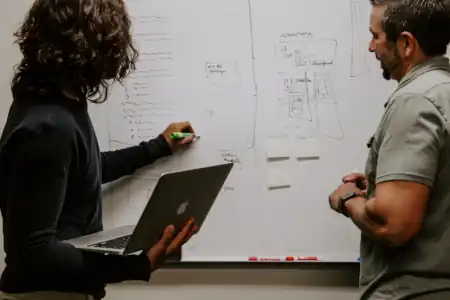Best Practices Around Open Work
The following best practices have been derived from a combination of both industry and academic policies and reviewed by our advisory board. Their intent is to help guide you in a manner that allows your efforts to have the most impact while potentially protecting you and the University from any cultural or legal conflicts around your efforts. Should you have any questions about them feel free to contact Open@RIT Director Stephen Jacobs or Assistant Director Michael Nolan.
While these are our recommendations, they are not official university policy nor do they qualify as official legal advice. In all cases, should you have any questions around policy or legal questions, refer to the appropriate offices of the university for official clarification for RIT projects or a personal lawyer for personal projects.
Any suggestions on how to improve this document, or strengthen it for any given discipline, are encouraged.
Contributing to Existing Open Projects

As with any other public endeavor that an RIT Community Member engages in, you should review their Code of Conduct, Contributors License Agreement, or other policies that are required by the outside projects for participants, and ensure these aren’t in conflict with RIT’s Code of Ethical Conduct and Compliance.
If the project acknowledges the efforts of external contributors in a way that allows for their affiliations to be mentioned, your affiliation with RIT should be properly credited within the project documentation and/or other related areas in the project and/or its website.

Disseminating your Open Work
Preparing your work for release can be remarkably daunting, even if you’ve done it before. Thankfully we’ve compiled a simple checklist to follow when considering sharing your work to the open world. It should help you ensure your work will reach the right audiences and that you’re following all the proper legal procedures.

Evaluation, Tenure, & Promotion
Representing and defending open work during the evaluation process for tenure and promotion can be difficult. Our article Making the Case for Open Work in Evaluation, Tenure, & Promotion can help you get on the right track. We’ve also included further reading to help you ensure your work receives the proper recognition it deserves.